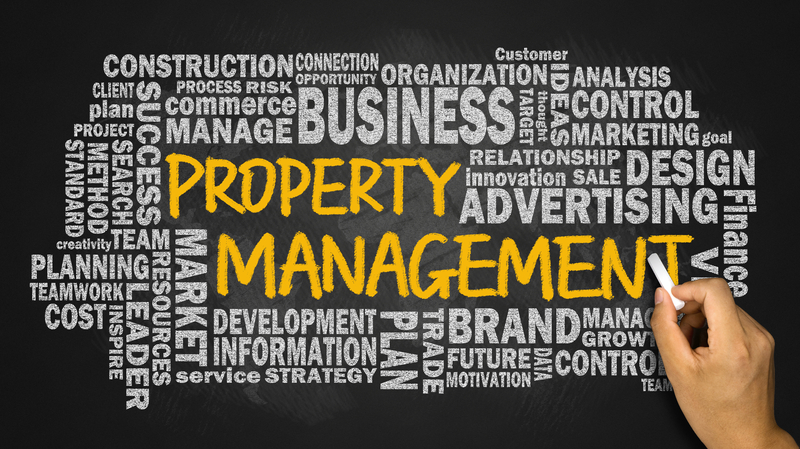Embarking on the journey of long-distance landlordship can be fraught with complexities and difficulties, particularly when you're geographically distanced from your rental property. Nevertheless, a strategic approach can transform these challenges into opportunities. This comprehensive guide offers seven astute tips to augment your journey to becoming a successful remote property manager.
Embracing the Challenges of Long-Distance Landlordship
Contrary to common misconceptions, landlordship is far from a leisurely stroll in the park. It demands time, skill, dedication, and relentless effort. This responsibility becomes even more formidable when your rental property is situated miles away from your location. However, implementing a strategic approach can enable you to efficiently manage your property, regardless of the distance.
Outlined below are vital strategies for optimally managing an out-of-state rental property.
1. Procuring Quality Tenants

The backbone of successful property management lies in securing high-quality tenants. As a long-distance landlord, it's crucial to entrust your property to tenants who respect the rules, pay their rent punctually, and take care of the property. This approach significantly reduces potential difficulties.
Identifying these ideal tenants demands meticulous screening. This process should involve examining their rental history, credit report, employment status, and criminal background. Additionally, it's advisable to request references and make an effort to contact them individually. However, throughout this process, you must remain compliant with Fair Housing laws.
Attracting quality tenants requires offering a well-maintained, appealing rental unit. You cannot expect premium tenants to be attracted to poorly maintained properties. Strive to make your property worthy of their attention and trust.
2. Implementing an Airtight Lease Agreement
In the absence of regular physical monitoring, an airtight lease agreement is non-negotiable. This agreement should lucidly outline the terms of the tenancy, including any specific rules for the tenants. It's essential that tenants understand their responsibilities and restrictions within the property prior to signing the lease. A clear lease agreement facilitates conflict resolution and supports eviction procedures, if necessary.
3. Prioritizing Communication
Communication forms the bedrock of successful landlord-tenant relationships. Even when distance separates you, ensure that tenants can reach you through various channels like email, phone calls, and online messaging. Regular check-ins to inquire about their experience and any potential issues are vital in maintaining a positive relationship, and can increase lease renewal rates.
If you're planning to be out of reach for a certain period, inform your tenant in advance and provide alternative contact details. This approach ensures that you're never completely unreachable.
4. Adopting Automated Payment Systems

Long-distance property management becomes increasingly challenging if antiquated payment methods are employed. Encourage tenants to use modern, online payment services, which reduce the risk of late payments and offer added convenience.
5. Collaborating with Reliable Personnel
Periodic physical visits to the property may be impractical for a long-distance landlord. Hence, enlisting trustworthy individuals to periodically check the property is advantageous. This could include trusted friends or family members.
Similarly, establishing a dependable network of maintenance and repair personnel is crucial. This should include individuals skilled in various repair tasks, from general maintenance to plumbing and electrical issues.
6. Acquiring Comprehensive Insurance Coverage
Regardless of the landlord's location, comprehensive insurance coverage is crucial. Your coverage should ideally include protection against theft, flooding, lost rental income, fire, and liability. Additionally, it's advisable to mandate that your tenants possess renters insurance to cover their personal belongings.
7. Engaging a Professional Property Manager

Despite adopting all the aforementioned strategies, managing a property from a distance can become overwhelming if you're unable to dedicate sufficient time to it. In such scenarios, hiring a property manager can be an excellent solution. A professional property manager can handle various tasks, from tenant screening to lease preparation and property inspections, and even eviction procedures, if required.
Assessing the Feasibility of Long-Distance Landlordship
Being a landlord is associated with potential benefits and challenges. This is particularly true for long-distance landlords who must understand the local rental market and tenant behavior, often with limited personal interaction. However, potential challenges can be mitigated with thorough research, technological tools, or by employing a professional to manage your property.
Long-distance landlordship might not always be a matter of choice, but can arise from various circumstances such as inheriting a property, moving temporarily, or simply spotting a lucrative investment opportunity.
The Verdict: Is Long-Distance Landlordship Worthwhile?
As demonstrated, long-distance property management carries its own set of advantages and challenges. The decision to embark on this journey should be based on individual circumstances and your capacity to overcome potential hurdles. Employing a professional property manager can significantly mitigate these challenges.
If you’d like to talk more about property management, or you need help with Everest Property Management, please contact us at Everest Realty.




 As a top producing Realtor and Property Manager; Terry specializes in sales, extensive construction homes, rentals, REO’s, short sales, and all aspects of Real Estate. After graduating the University of Michigan with a master in MBA, Terry continued his endeavor and now has over 15+ years of experience in the Real Estate world. If there is anything that has to do with Real Estate and sales, you can always be sure of Terry to provide important, specialized knowledge.
As a top producing Realtor and Property Manager; Terry specializes in sales, extensive construction homes, rentals, REO’s, short sales, and all aspects of Real Estate. After graduating the University of Michigan with a master in MBA, Terry continued his endeavor and now has over 15+ years of experience in the Real Estate world. If there is anything that has to do with Real Estate and sales, you can always be sure of Terry to provide important, specialized knowledge.




